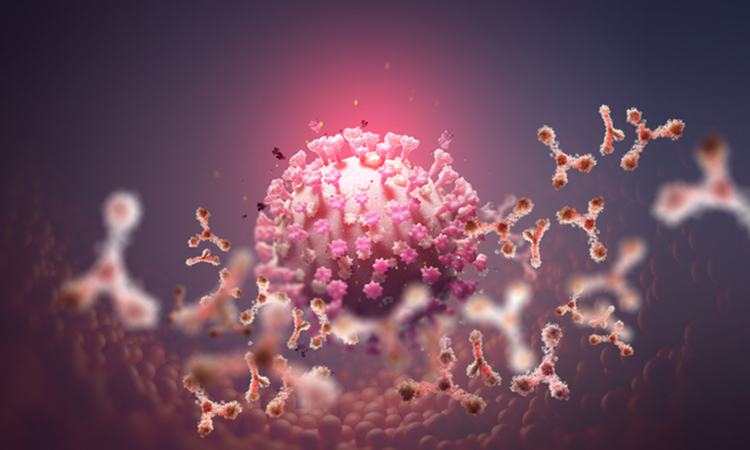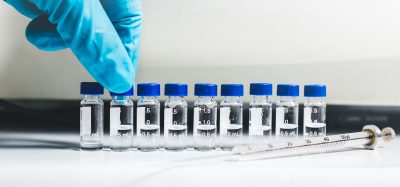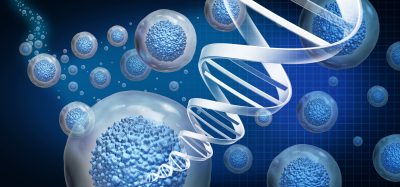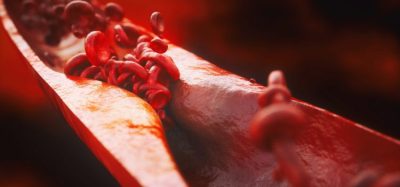Antibodies that can neutralise SARS-CoV-2 Omicron variant identified
Posted: 5 January 2022 | Victoria Rees (Drug Target Review) | No comments yet
A study has revealed four classes of antibodies that can neutralise Omicron by targeting one of four areas of the spike protein present in SARS-CoV-2 variants.


A team of scientists from the University of Washington School of Medicine in Seattle, US, have identified antibodies that neutralise Omicron and other SARS-CoV-2 variants. According to the team, these antibodies target areas of the virus spike (S) protein that remain essentially unchanged as the viruses mutate.
By identifying the targets of these broadly neutralising antibodies on the S protein, it might be possible to design vaccines and antibody treatments that will be effective against not only the Omicron variant but other variants that may emerge in the future.
“This finding tells us that by focusing on antibodies that target these highly conserved sites on the S protein, there is a way to overcome the virus’ continual evolution,” said Associate Professor David Veesler, co-lead researcher of the study, published in Nature.
Biomarkers aren’t just supporting drug discovery – they’re driving it
FREE market report
From smarter trials to faster insights, this report unpacks the science, strategy and real-world impact behind the next generation of precision therapies.
What you’ll unlock:
- How biomarkers are guiding dose selection and early efficacy decisions in complex trials
- Why multi-omics, liquid biopsy and digital tools are redefining the discovery process
- What makes lab data regulatory-ready and why alignment matters from day one
Explore how biomarkers are shaping early drug development
Access the full report – it’s free!
The researchers say that the Omicron variant has 37 mutations in the S protein, which it uses to latch onto and invade cells, which is an unusually high number of mutations. To assess the effect of these mutations, they engineered a disabled, non-replicating virus, called a pseudovirus, to produce S proteins on its surface, as coronaviruses do. They then created pseudoviruses that had S proteins with the Omicron mutations and those found on the earliest variants identified in the pandemic.
The scientists first looked to see how well the different versions of the S protein were able to bind to the angiotensin converting enzyme-2 (ACE2) receptor on the surface of cells, which the virus uses to latch onto and enter the cell. They found the Omicron variant S protein was able to bind 2.4 times better than S protein found in the virus isolated at the very beginning of the pandemic. The team also found that the Omicron version was able to bind to mouse ACE2 receptors efficiently, suggesting Omicron might be able to move between humans and other mammals.
The researchers then looked at how well antibodies against earlier isolates of the virus protected against the Omicron variant. They did this by using antibodies from patients who had previously been infected with earlier versions of the virus, vaccinated against earlier strains of the virus or had been infected and then vaccinated.
They found that antibodies from people who had been infected by earlier strains and from those who had received one of the six most-used vaccines currently available all had reduced ability to block infection.
Antibodies from people who had previously been infected and those who had received the Sputnik V or Sinopharm vaccines as well as a single dose of Johnson & Johnson had little or no ability to neutralise the Omicron variant’s entry into cells. Antibodies from people who had received two doses of the Moderna, Pfizer/BioNTech and AstraZeneca vaccines retained some neutralising activity, albeit reduced by 20- to 40-fold, much more than any other variants.
Antibodies from people who had been infected, recovered and then had two doses of vaccine also had reduced activity, but the reduction was less (about fivefold).
Antibodies from people, in this case a group of renal dialysis patients, who had received a booster with a third dose of the mRNA vaccines produced by Moderna and Pfizer/BioNTech showed only a fourfold reduction in neutralising activity.
“This shows that a third dose is really, really helpful against Omicron,” Veesler said.
All but one antibody treatment currently authorised or approved to be used with patients exposed to the virus, had no or markedly reduced activity against Omicron in the laboratory. The exception was an antibody called sotrovimab, which had a two- to threefold reduction of neutralising activity, the researchers found.
When the team tested a larger panel of antibodies that had been generated against earlier versions of the virus, the researchers identified four classes of antibodies that retained their ability to neutralise Omicron. Members of each of these classes target one of four specific areas of the S protein present in SARS-CoV-2 variants. These “conserved” sites on the protein may persist because they play an essential function that the protein would lose if they mutated.
The finding that antibodies are able to neutralise via recognition of conserved areas in so many different variants of the virus suggests that designing vaccines and antibody treatments that target these regions could be effective against a broad spectrum of variants that emerge through mutation, the team conclude.
Related topics
Antibodies, Biologics, Biopharmaceuticals, Drug Development, Immunology, Vaccine
Related conditions
Covid-19
Related organisations
AstraZeneca, BioNTech, Moderna, Pfizer, Sinopharm, University of Washington School of Medicine in Seattle
Related people
Associate Professor David Veesler








